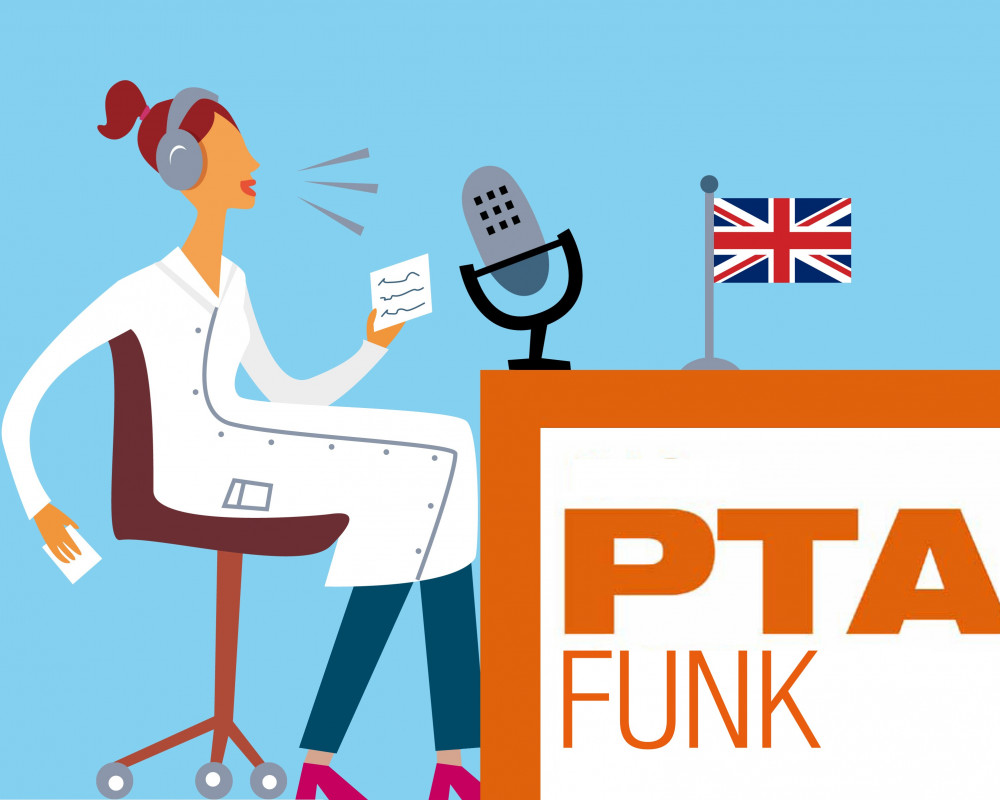Podcast PTA FUNK: Einfach Englisch lernen – HIV and Aids

Dialogue
PTA: Good afternoon, how can I help you?
Customer: Is it possible to talk confidentially somewhere?
PTA: Yes, of course. We’ll use our consultation room. Come this way, please.
Customer: Thank you.
PTA: OK, so what’s the problem?
Customer: I’m worried about my partner. He’s getting very depressed. He was diagnosed HIV positive just over a year ago. Before that, he used to be very sociable. He enjoyed partying at weekends, playing football and meeting lots of friends.
PTA: So, he has he been put on antiretroviral therapy, I suppose.
Customer: Yes.
PTA: Is he taking the medication every day exactly as prescribed?
Customer: I think so. Is it possible that’s what’s causing the depression?
PTA: What are his symptoms?
Customer: He’s sad, pessimistic and he’s lost all interest in things he used to enjoy. He’s feeling worthless and guilty.
PTA: Depression is one of the most common conditions in patients with HIV, about 30 to 40 percent are affected. Some antiretroviral medication can cause mood swings and it’s also possible that drug-drug or even drug-food interaction is the reason.
Customer: What does that mean?
PTA: Basically, that some foodstuffs or over-the counter remedies can interfere with the HIV medication.
Customer: My partner’s mother, who doesn’t know that he’s HIV positive, is a big fan of herbal remedies. She wants him to take St. John’s wort capsules.
PTA: That’s not a good idea. St. John’s wort is known to interact with medication prescribed for HIV. That might diminish the effectiveness of the therapy and become a serious problem.
Customer: Oh dear.
PTA: Firstly, I think he needs to see his health care provider to assess the situation. Maybe you could go with him? Take all his medicines, vitamins and supplements with you. That way, you can be sure that any interactions would be detected. Secondly, you could persuade him to join a support group for HIV patients. Talk therapy is one of the best ways of dealing with this kind of problem and other patients may be helpful in this approach.
Customer: Is there anything he could take now? I’m worried that he’ll turn to alcohol or ecstasy or something else that’ll only make matters worse.
PTA: He shouldn’t take anything without his health care provider’s approval. And if he is prescribed an antidepressant, it can take two to four weeks to take effect.
Customer: That’s a long time.
PTA: Yes. Make an appointment as soon as possible and in the meantime see that he gets regular exercise. That’s both uplifting and a good way to reduce stress.
Customer: That’s a good idea. Perhaps I can also get him to talk to his mother. I’m sure that would help.
PTA: I agree. We’re here if you need us. Don’t hesitate to ask.
Customer: Thank you so much for your help.
PTA: You’re welcome.
AIDS: A Threat under Control
Hier finden Sie ab November 2021 den kompletten Heftarchivartikel A Threat under Control (Ausgabe 11/2021) aus unserer Serie English for PTA.